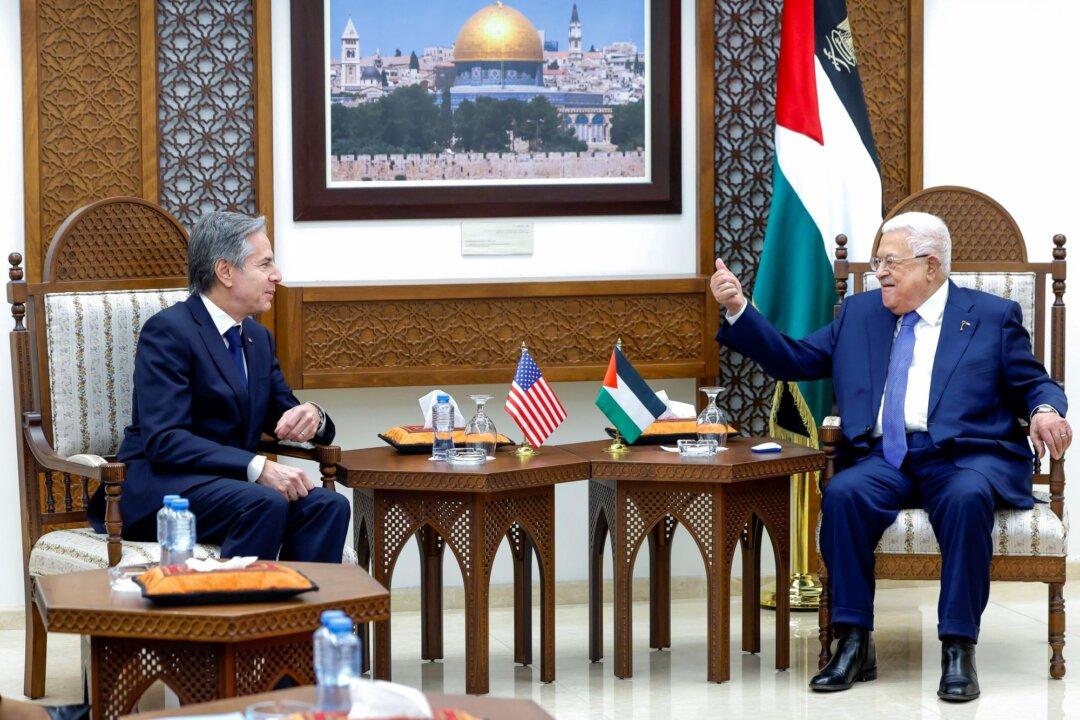TEL AVIV, Israel—Secretary of State Antony Blinken spoke to Mahmoud Abbas, the leader of the Palestinian Authority, on Wednesday about reforming its governance, as part of U.S. efforts to rally the region behind postwar plans for Gaza that also include concrete steps toward a Palestinian state.
Mr. Blinken says he has secured commitments from multiple countries in the region to assist with rebuilding and governing Gaza after Israel’s war against Hamas, and that wider Israeli-Arab normalization is still possible, but only if there is “a pathway to a Palestinian state.”





